
JUST METRES FROM the ferry that's carried me across the blustery Foveaux Strait to Stewart Island / Rakiura, New Zealand's third-largest island, a group of variable oystercatchers is foraging on the foreshore. These endemic coastal seabirds are striking-jet-black feathers, bright coral-pink legs and vivid orange markings, like fluorescent eyeliner, around J the eyes.
While continuing along the bay and through the small township of Oban - the only settled area of this remote island 30km south of NZ's South Island - my attention is drawn to rustling leaves in a small tree just off the footpath. Upon closer inspection, there among the branches is not one, but a pair of tui. The birds - also endemic to this island - are nonchalantly going about their business, feeding on the nectar of a native flax, one of NZ's most ancient plant species, blissfully unaware of the human admiring them from below. The tui are adorned with deep-blue, green, purple and bronze glossy feathers - a royal-looking plumage that contrasts delightfully with a quirky white fluffy tuft on their throats.
On a high from my tui encounter, I stroll up the hillside to check in to my accommodation - Stewart Island Lodge. It's not long before I've found myself the perfect spot on the balcony, surrounded by garden, overlooking the picturesque Halfmoon Bay. I stare off into the distance, but my daydream state is broken by a sound coming from the raised garden bed beside me.
Bu hikaye Australian Geographic Magazine dergisinin July - August 2023 sayısından alınmıştır.
Start your 7-day Magzter GOLD free trial to access thousands of curated premium stories, and 9,000+ magazines and newspapers.
Already a subscriber ? Giriş Yap
Bu hikaye Australian Geographic Magazine dergisinin July - August 2023 sayısından alınmıştır.
Start your 7-day Magzter GOLD free trial to access thousands of curated premium stories, and 9,000+ magazines and newspapers.
Already a subscriber? Giriş Yap
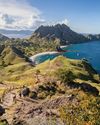
SULAWESI SENSATIONS
There are worlds within worlds and marvels untold waiting to be experienced on Indonesia's remote islands.
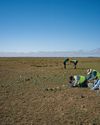
SEARCHING FOR AUSSIE DINOSAURS
Our understanding of where to find ancient life in Australia has been turned on its head by a new appreciation of the country's geology. Now the world is looking to our vast outback as the latest hotspot to locate fossils.
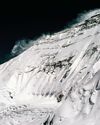
THE HARDEST NIGHT
The first Australian ascent of Mt Everest in 1984 is one of the great feats of mountaineering. Climbed by a small team semi-alpine style, with no bottled oxygen, via the Great (Norton) Couloir, it remains unrepeated 40 years later.
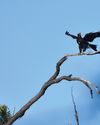
WEDGE-TAILED WONDER
The chance discovery of an eagle nest leads to an extended vigil observing normally hidden behaviours of one of nature's supreme winged marvels.
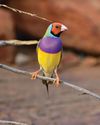
BURDENED BY BEAUTY
Northern Australia's Gouldian finch survives in huge numbers in cages around the world, but its wild population continues to struggle.
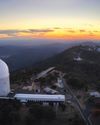
A TELESCOPE FOR A GOLDEN AGE
After a stellar 50 years as one of the country's major scientific assets, the AAT continues to play a major role in keeping Australian astronomy on the world stage.
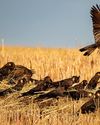
COCKY WHISPERING AT COOMALLO CREEK
This patch of remnant bush on the edge of the West Australian wheatbelt is a place loved by one of Australia's rarest bird species and the man who has studied the site for more than 50 years.

A PIONEERING PAIR
Louisa Atkinson and her mother, Charlotte, were among Australia's earliest authors, and pioneers in women's rights.

THE LONGEST WALK
Lucy Barnard is walking from Argentina to Alaska -the length of the Americas - on an extraordinary journey of endurance and adventure.
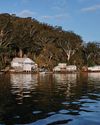
SECLUDED, BUT NOT ALONE
In an era of heightened social isolation, where many of us lead lonely lives, Dangar Island offers the chance to be part of a supportive, connected community.